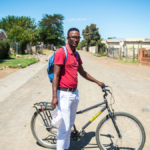- Deciding to donate your organs is tough. But it could be even harder if you had to make such a decision while grappling with your newborn’s death.
- Research presented at a conference of the European Society for Organ Transplantation in Greece in September shows that transplanting a baby’s kidneys into an adult recipient could help to relieve the shortage of donor organs in the United States.
- But it’s a contentious issue — and one few people are willing to consider. Would you?
Would you give your dying baby’s organs to save someone else’s life?
It’s a question few parents are willing to face when they’re grieving for the loss of their newborn child.
But research presented at a conference of the European Society for Organ Transplantation in Greece in September argues that kidneys from babies who die within 28 days of birth, (called a neonatal death) because the part of their brain that controls breathing and consciousness has died, could save thousands of lives every year.
In 2020, about 20 000 newborns died in the United States. Approximately 12 000 of these deaths occurred within a month of birth (calculated based on roughly 3.6-million live births in the US in 2020). However, when a newborn baby dies because of serious birth defects (such as being born without parts of the brain or skull), the spinal cord not developing correctly or not being able to breathe well because their lungs aren’t ready for life, their organs may still be saved if they can be hooked up to a ventilator and their hearts can keep on pumping blood through their bodies. In cases like these, a dying baby could be a suitable organ donor.
In the same year, about 7 600 people in the US died after having waited for kidney transplants for three years because their organs have failed to such an extent that they could not filter out toxic waste from the body anymore. (At this point, when someone is said to have end-stage renal disease, only an organ transplant or getting dialysis three or four times a week, when the patient is connected to a machine that cleans the blood for three to five hours at a time, can keep the person alive.)
So if the numbers of potential baby donors match so well with the number of people waiting for organs, why isn’t it a go-to option to relieve the shortage in donor kidneys?
A stitch in time saves nine
It’s because the parents of a deceased infant are almost never prepared for the possibility of donating their baby’s organs, says Dai Nghiem, the study’s author. “Their baby just died. They’re grieving, so they don’t always understand what’s happening.”
Yet transplanting an infant’s kidneys into an adult can give the recipient a healthier and longer life than getting an organ from a grown donor, the study argues — which Nghiem says may help grieving parents think about organ donation differently.
This is because a newborn’s kidneys are brand new and grow fast, so much so that within 24 months their ability to filter blood is at their best. Studies show that from about the age of 30, our kidneys start to become less efficient because the kidney cells, each with a filtering unit (called a glomerulus), start to die or become damaged. It’s almost like the difference between driving a car fresh out of the factory and one that’s 30 years old with 300 000 kilometres on the clock.
A 2021 study shows that a kidney from an adult donor can buy the recipient anything from 11 to 19 years of healthy filtration, depending on whether the organ came from someone who had died or who was still alive when they donated the kidney. A kidney from a baby younger than one year, though, can last up to 25 years.
However, transplanting a baby’s kidneys into adult bodies is uncommon — and has been controversial — despite research showing that this could increase the pool of donor organs because baby kidneys work so well and are easily accepted by recipients’ bodies.
For starters, the surgery is tricky. Both kidneys are transplanted at the same time, but because the blood vessels are tiny and delicate, attaching them to an adult’s organs requires very fine stitching. Transplanting both kidneys is necessary because the pressure at which an adult’s heart pumps out blood could be too high if it all has to pass through the tiny blood vessels of a single infant kidney and so cause damage.
There have also been concerns about blood clots forming or the bladder starting to leak after the operation, although research shows that when the transplant technique is meticulous, these complications are rare and few grafts are lost, and are similar to what is seen with transplants from living adult donors.
Are baby donors an option in SA?
In South Africa, just over one in 10 people are thought to have chronic kidney disease (CKD), which is when a disease stops the kidneys from working as well as they should, and gets worse over time. Eating a healthy diet and keeping issues such as high blood pressure and diabetes under control could buy someone more time, but researchers say that because of poor access to healthcare and poverty, this is hard to achieve. This means many people who already have kidney disease will likely get so sick that they go into renal failure. By this time only dialysis or a kidney transplant can save the person’s life.
And in our country neither is an easy option.
A study shows that in 2019 dialysis could cost between R375 000 and R490 000 per patient per year at a large public training hospital in Gauteng, depending on how often someone needs to get the treatment and of what type it is. Moreover, these treatment facilities are scarce: there are fewer than 300 centres in the country, with almost 90% of them in the private sector, and those in the public system only being available at large state hospitals close to cities.
According to Rafique Moosa, chair of South Africa’s ministerial advisory committee on organ transplants, who advises the health minister on organ donations from live donors who are not part of the recipient’s family, “there also aren’t enough personnel [such as kidney specialists, nursing staff and technologists] in the public sector to care for all the patients with kidney failure”.
These budget and infrastructure constraints, says Moosa “leads to rationing of this treatment by the state”, which critics have called a human rights violation, worsened by the rules for getting access to dialysis being based on citizenship and having enough money to be able to travel to a treatment centre and adhering to the aftercare instructions.
According to the Organ Donation Fund, only 129 kidneys were transplanted in South Africa in 2021. The year before, just over 8 700 people were on dialysis, though — and only a quarter of them were treated at state hospitals.
If one then considers that about 11 of every 1 000 babies born in South Africa die before they’re a month old (albeit many from being born prematurely or infection and so would not be suitable donors), could some neonatal donors help ease the country’s shortage of these organs and so both improve patient care and bring down treatment costs?
Moosa is doubtful, because of the surgery being so tricky and transplant doctors not routinely being trained to perform these operations. But worse, he says, is that there is considerable organ donor reluctance in South Africa.
Although someone can, while they’re still alive, register to be an organ donor upon death, in reality, only their family can give the go-ahead for organ donation.
According to the South African Transplantation Society, only about five deceased patients were referred for organ donation per month in the country in 2018. Moreover, a 2020 study across three Western Cape hospitals found that in the private sector, families consented to their loved one’s organs being donated in only one out of two cases, and only in one in four cases in the public sector. Reasons varied from religious and cultural beliefs to the family being unwilling to make a decision about organ donation on behalf of someone else, the research showed.
Moosa stresses that with better communication and planning, these attitudes could change: “We need to better educate our society on the importance of becoming organ donors. More importantly, we should discuss the issue with our families while we’re healthy, so that they know what our wishes are.”












